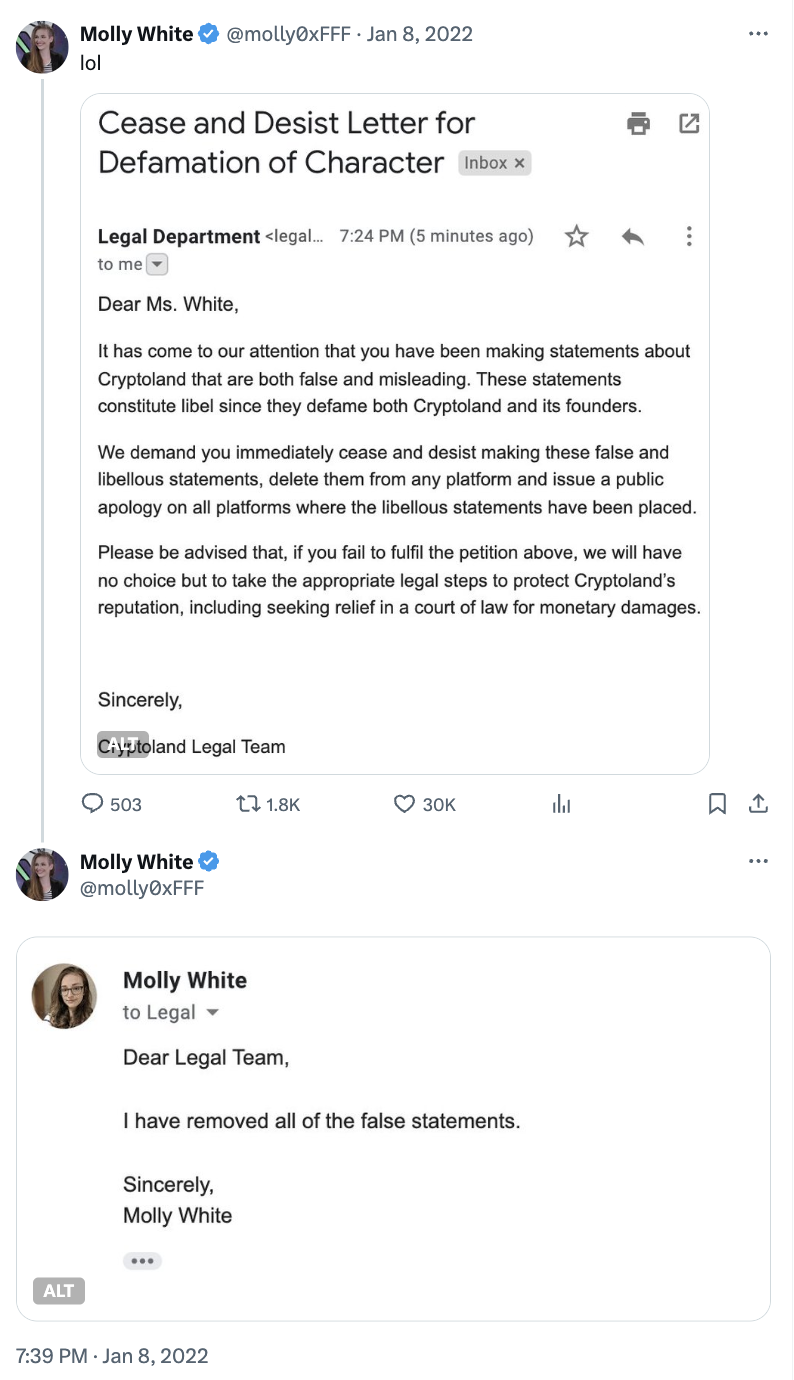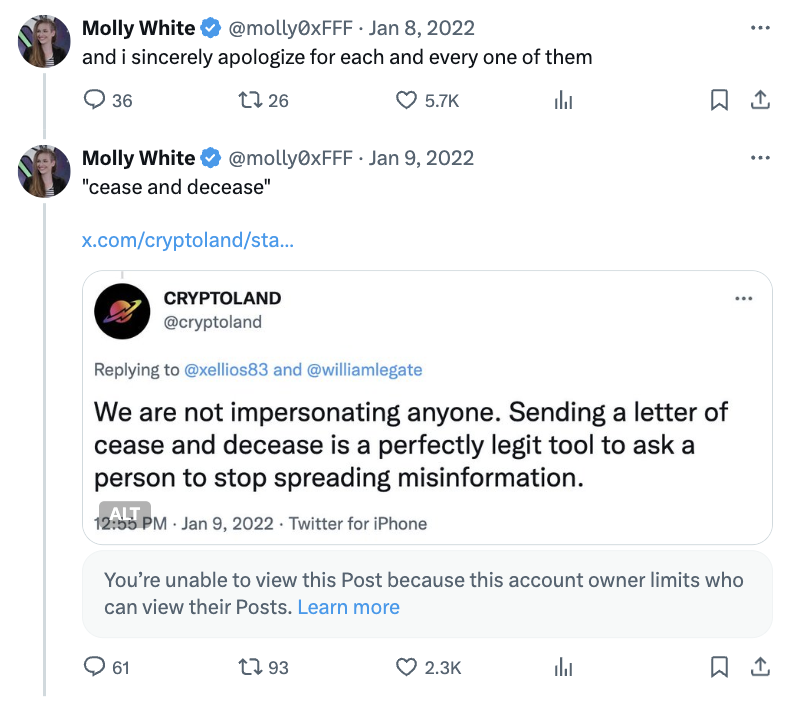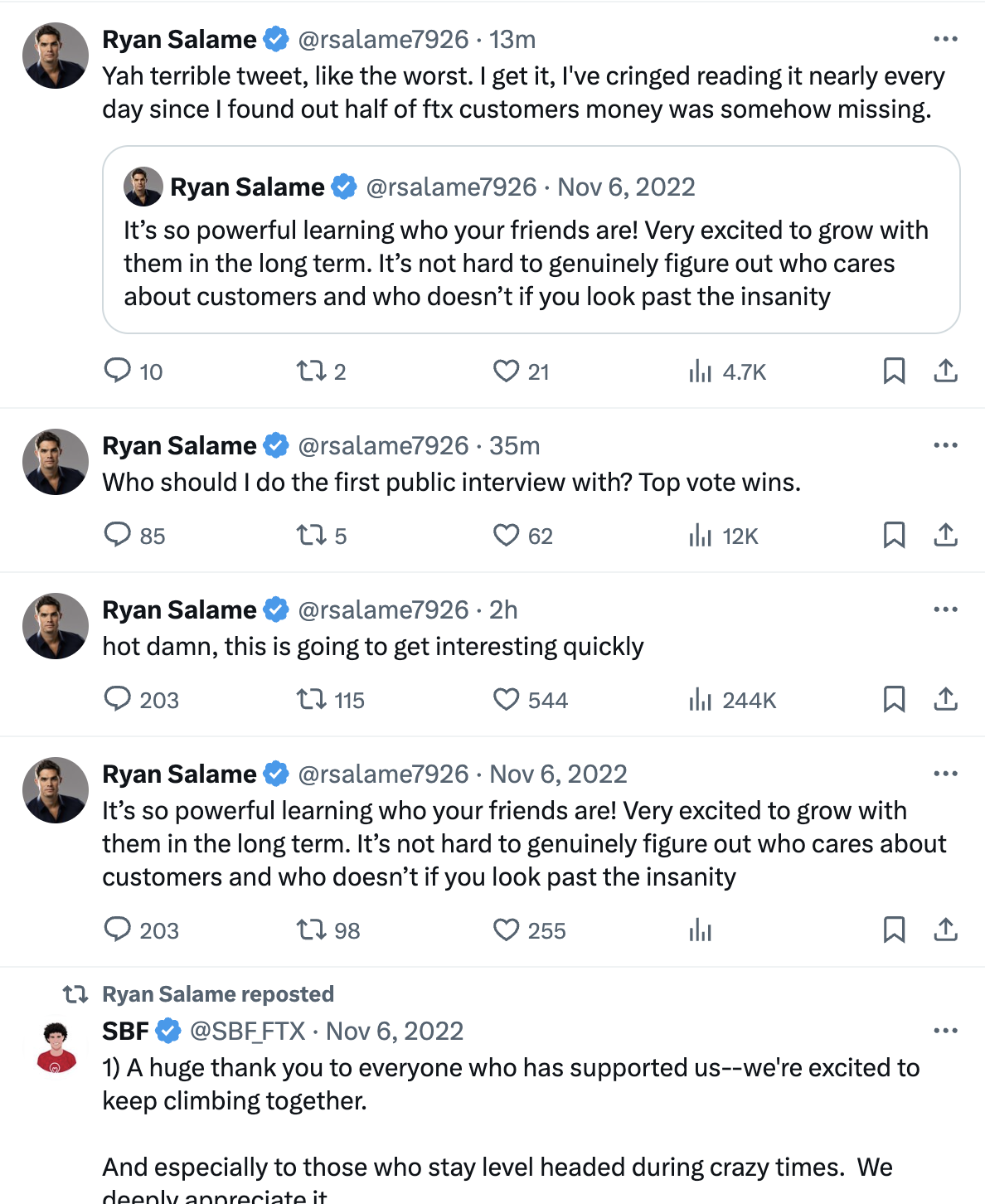Quote from man sued: "What are you gonna do, sue me?"
Kevin O'Leary has sued crypto personality Ben Armstrong (aka "BitBoy Crypto") for repeatedly claiming O'Leary murdered two people.
(O'Leary and his wife were indeed involved in a boating collision that killed two people in 2019; O'Leary states in the lawsuit that it was his wife driving the boat, and she was acquitted of any charges.)
BitBoy also suggested that O'Leary was trying to have him killed, and claimed he'd swatted him. Shortly after, he posted O'Leary's cell phone number and encouraged his followers to "call a real life murderer"
Amusingly, BitBoy once tried to file a defamation lawsuit of his own against a YouTuber who called him a "shady dirtbag". He dropped the suit almost immediately after the YouTuber raised over $200,000 for his defense, and Armstrong admitted he didn't know lawsuits were public.
It's not clear that BitBoy even knows he's been sued yet; he was arrested two days ago after sending threatening emails to the judge in a different defamation case he's facing from his former business partners after he publicly accused them of various crimes.
![27. On March 19, 2025, Armstrong unleashed another tweet accusing O’Leary of committing “actual crimes”: “Doesn’t everybody think it’s weird that I’ve been publicly calling … @kevinolearytv [a] murderer[] and yet not a single word or legal action? It’s almost like they ‘can’t’ because a lawsuit would open up their actual crimes and they know it.”](https://storage.mollywhite.net/micro/cc6240fece1a25cdb952_Screenshot-2025-03-27-at-11.15.02---PM.png)
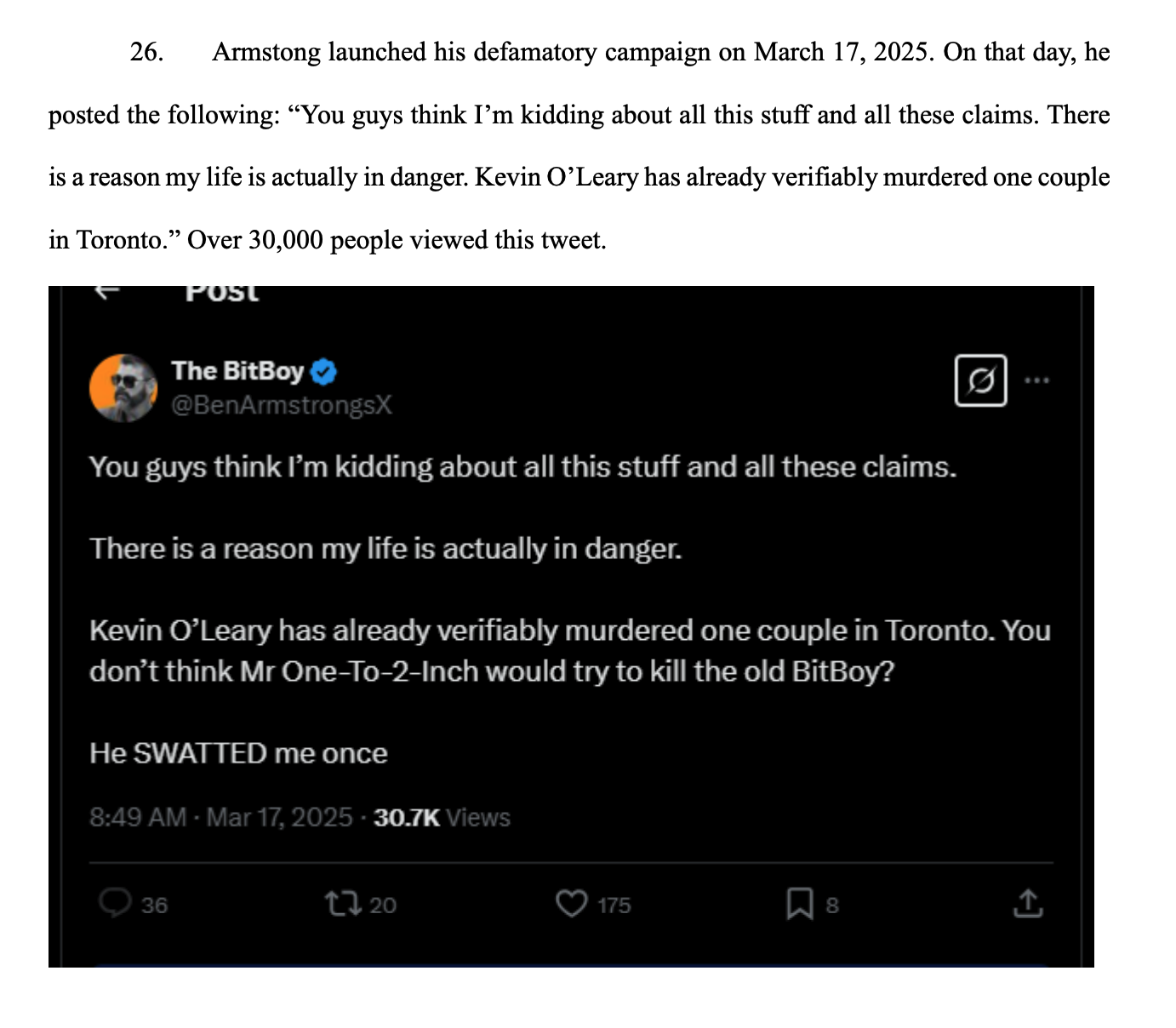
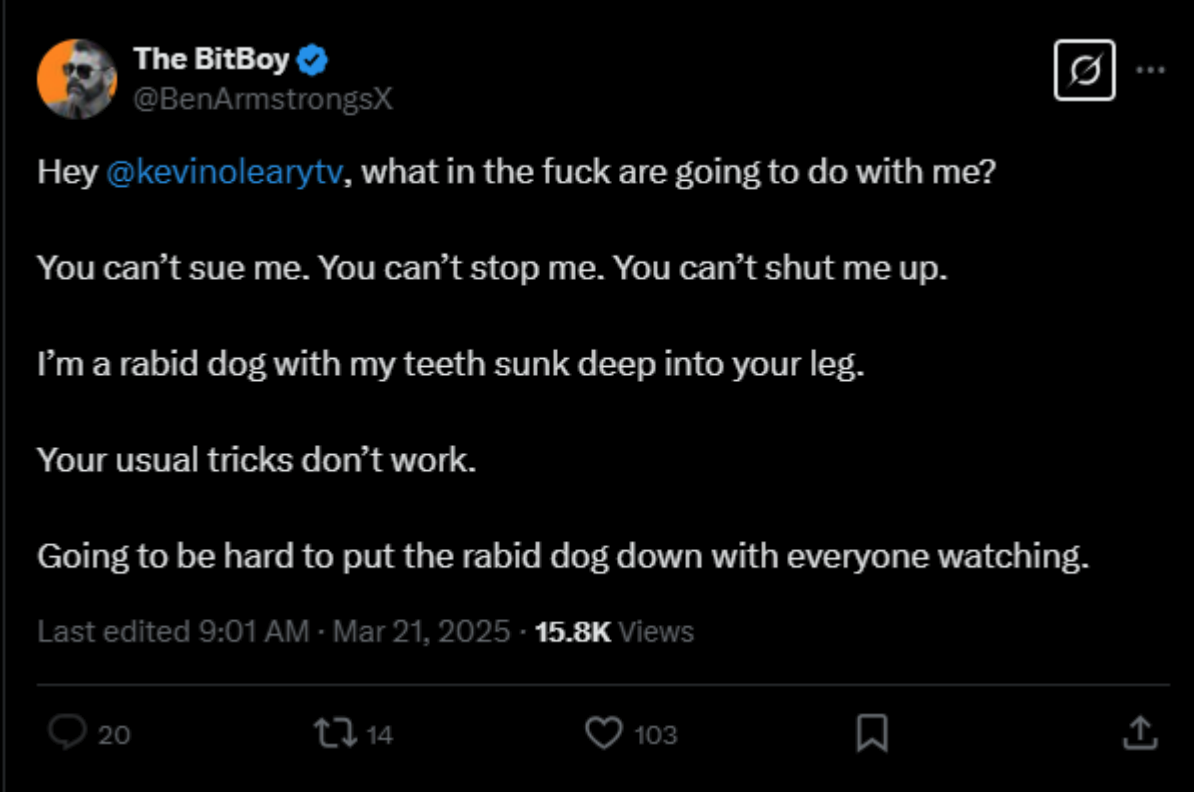
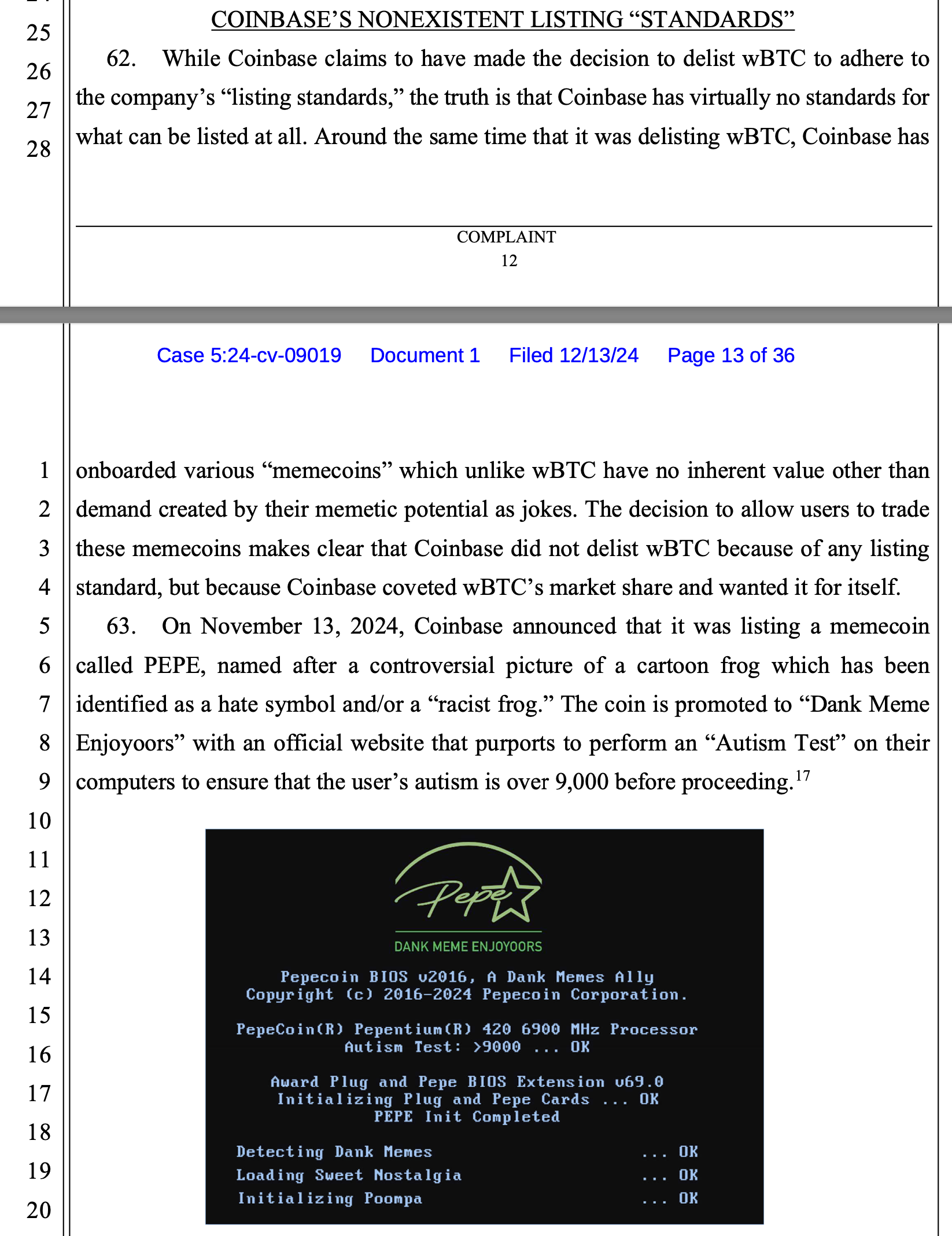
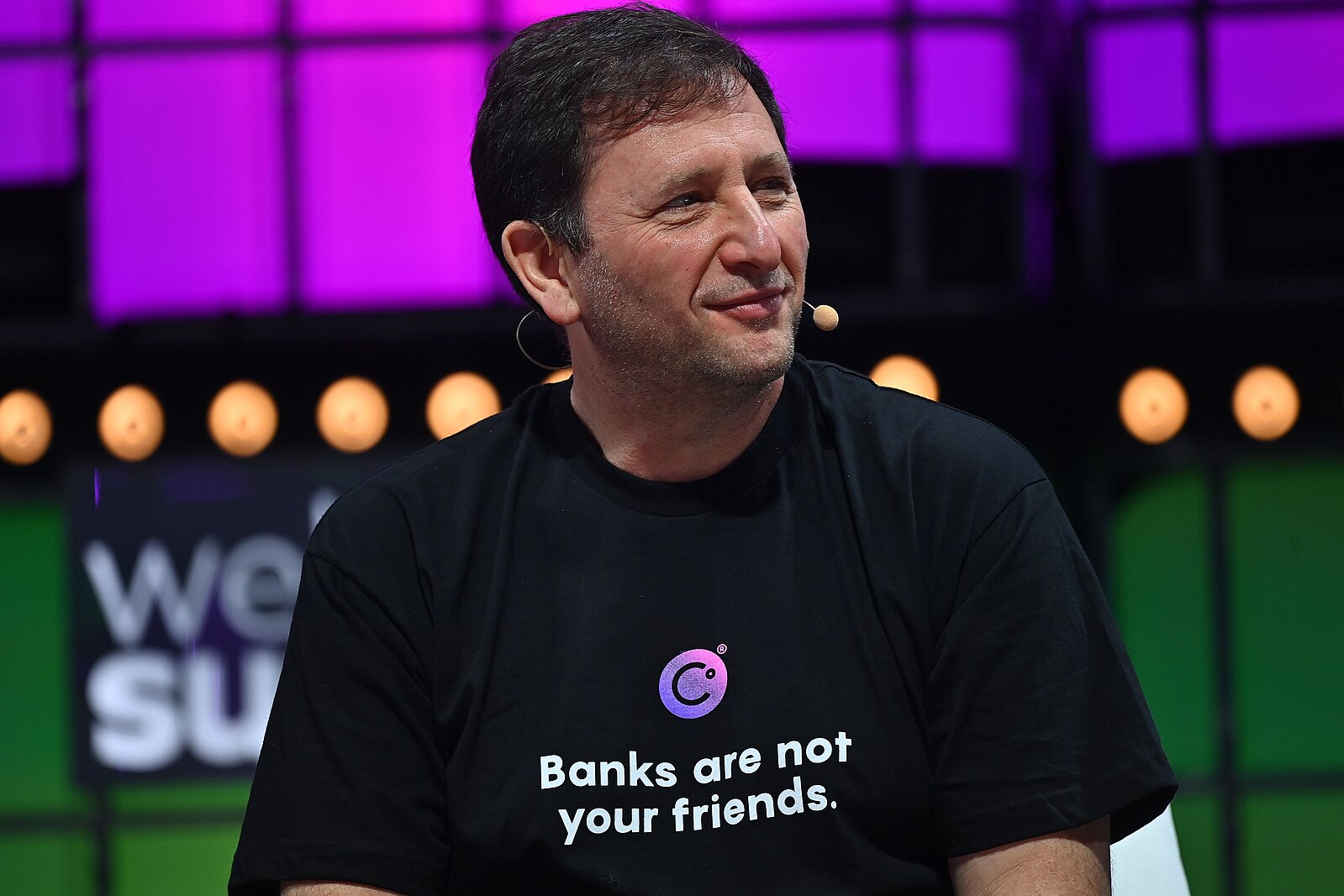
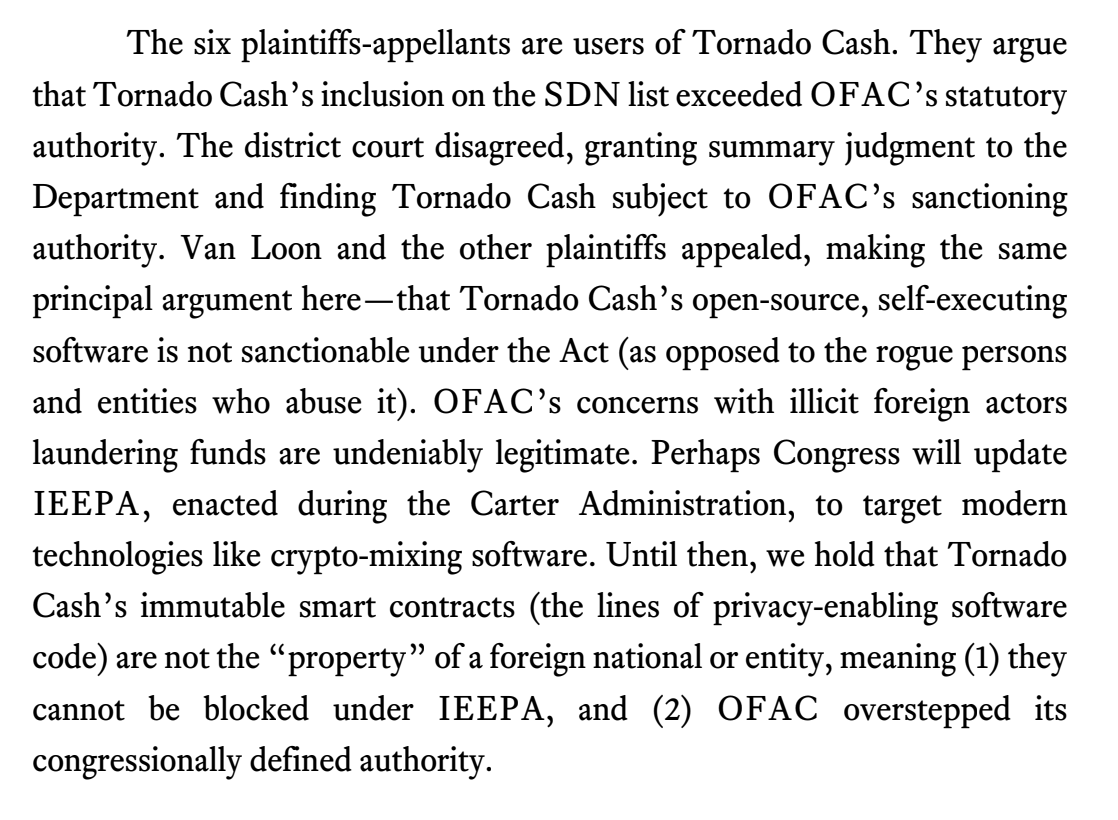
![The immutable smart contracts at issue in this appeal are not property because they are not capable of being owned. More than one thousand volunteers participated in a “trusted setup ceremony” to “irrevocably remov[e] the option for anyone to update, remove, or otherwise control those lines of code.” And as a result, no one can “exclude” anyone from using the Tornado Cash pool smart contracts. In fact, because these immutable smart contracts are unchangeable and unremovable, they remain available for anyone to use and “the targeted North Korean wrongdoers are not actually blocked from retrieving their assets,” even under the sanctions regime. Simply put, regardless of OFAC’s designation of Tornado Cash, the immutable](https://storage.mollywhite.net/micro/5c9f39635b98489b176d_Screenshot-2024-11-26-at-7.01.20---PM.png)
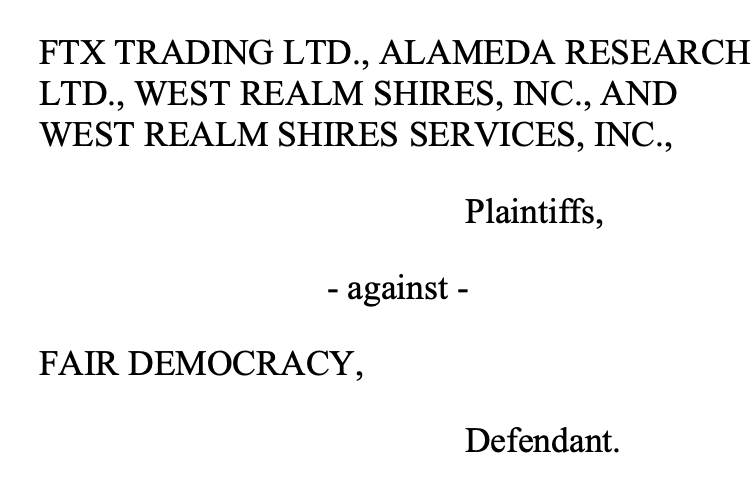
![Plaintiff, through individual intelligence, entrepreneurship and human ingenuity, along with the aid of God, is in the professional business of servicing subprime auto loans generated by an affiliated Car Dealership, alongside an internally-partnered, financial services institution ["Bank"].](https://storage.mollywhite.net/micro/242e61648aa0a46d7a94_Screenshot-2024-10-31-at-7.35.49---PM.png)
